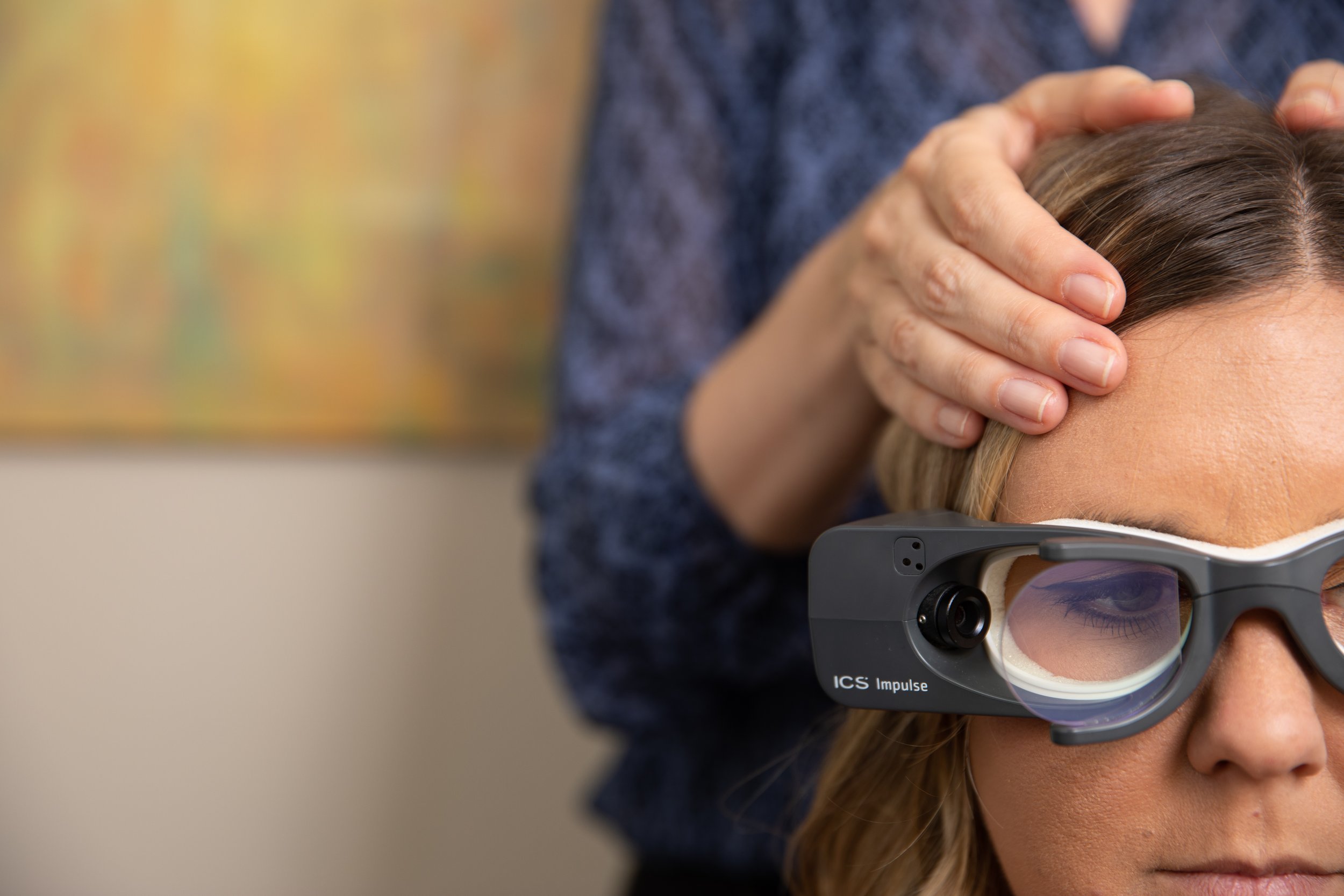
Vestibular Assessment
What is a Vestibular Assessment?
If you have dizziness or balance problems and have never had a Vestibular Assessment, this is your first step towards finding answers. Click here for more details on who should book a Vestibular Assessment.
During a Vestibular Assessment, you will let us know about your symptoms in detail. We will ask questions related to your health, medications and lifestyle.
We will perform basic balance tests in different stances and conditions (with eyes open and closed).
Then, using infrared googles, we will look at how well the inner sensors for balance are working, and how well the eyes, the whole body and the brain are working with these sensors to keep you balanced. Testing involves eye, head and body movements. This test is called VNG (Video-nystagmography).
Whenever indicated, cervical and ocular VEMPs (Vestibular Evoked Myogenic Potentials) and caloric testscan also be performed at the Audio-Vestibular Clinic.
This comprehensive vestibular assessment can show signs of a peripheral (inner ear) and/or central (parts of the brain) disorder. This will be helpful to plan the best course of action for you, including recommended further medical investigations and more importantly, a treatment plan.
A detailed report is sent to your Family Doctor and any other specialists you indicate during your appointment. We will strive for excellence, ensuring continuity of care, in a timely and tailored fashion.
Who should book an assessment?
-
Are you having an acute vertigo (sensation of spinning) spell? Are you experiencing any additional symptoms such as vomiting, changes in your vision, difficulty standing up, walking, speaking, or swallowing? If yes, you may want to see a Family or Emergency Physician.
Once the worst of your vertigo spell is over and you are able to start moving your head and walking around, it is time to book a vestibular assessment. With results in hand, you will know what you can expect from the recovery process, what you can do to help you recover, and whether any other testing, investigation, or treatment should be pursued.
You may have been told to wait and that dizziness, imbalance and other symptoms will go away and they may. However, you can make this process easier when you have the answers as to what happen and how you can help yourself get better.
-
Have you been dealing with vertigo (spinning dizziness) or any other form of dizziness for more than 6 weeks? Did it start after an Acute Vertigo Spell?
You may have been told that it would go away or that you should just keep active and that it will get better…. but it hasn’t! It is time to book a vestibular assessment.
You will have the answers you need to understand what happened and what you can do to get better.
-
Have you had dizziness for months or years and have never found out why? Have you been told you have vertigo and there is nothing you can do about it? Or that you have to learn to live with it? Have you actually tried vestibular rehabilitation but the dizziness keeps coming back? It may have started with an Acute Vertigo Spell but it has never gone away.
If you have been dealing with constant or recurrent dizziness for months, you may not only have reduced your level of activity but may also have had to change your lifestyle in several ways. You may have, for instance, reduced your work hours or stopped working all together, stopped driving, avoiding going out, particularly to busy places, avoiding reading, watching movies, working on computers or changed plans for travels.
Most naturally, if this is the case, you have been dealing with feelings of frustration, doubt, sadness, anger. You may also have difficulty sleeping, a sensation that you cannot think clearly or that your brain is in a fog. You may actually have been diagnosed with depression or anxiety and prescribed medication for it. But it has not helped with the dizziness. It is time to book a vestibular assessment. Once you understand what is happening, you will be able to take back control of your activities and your life.
-
Do you have balance problems? Do you feel unsteady, wobbly? Do you have to hold onto people or things around you to feel secure? Have you fallen or fear that you may fall?
If you have answered yes to one or more of these questions it is time to book a Vestibular Assessment. The vestibular system (the inner ear sensors for balance and its connections to the brain) are a major part of our balance system. It is essential to know whether the vestibular system is contributing to your sense of imbalance. You will only know what to expect from a rehabilitation program if you know what parts of your balance system can still be relied upon.
On the path to recovery, Vestibular Assessment is the first step towards understanding what is happening.
Our appointments aim to determine whether the vestibular system is contributing to your symptoms. Knowing what part of this complex system is likely to be the culprit will help us understand what you can expect from the recovery process and will guide us in developing an individualized treatment plan.
